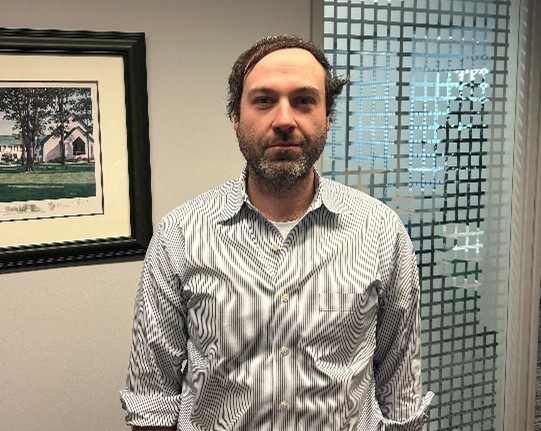Share this post

We recently hosted a webinar with the team from Murray Hunter Professional Corporation. We were joined by Murray Hunter, Corey Hunter and Ryan Berg who provided a comprehensive guide on financial transparency and compliance for condominium owners.
Murray Hunter, CPA
Murray has been in public practice for over 50 years and has specialized in providing audit services for Condominium Corporations here in Calgary for the past 20 years with his team of professionals. He founded the firm Murray Hunter Professional Corporation in 2003 which is a leading practice in the audits of Condominium Corporations.
Corey Hunter, CPA
Corey has been in public practice for 17 years and has specialized in providing audit services for Condominium Corporations here in Calgary for the past 7 years with his team of professionals. He purchased the firm Murray Hunter Professional Corporation in 2021 which is a leading practice in the audits of Condominium Corporations.
Ryan Berg, CPA
Ryan launched his career at KPMG in 2007, earning his Chartered Accountant designation in 2010. He spent over a decade in the oil and gas sector, advancing to senior roles, including Controller, where he led strategic initiatives and drove operational excellence across multiple accounting departments. In November 2024, he brought his extensive expertise to Murray Hunter Professional Corporation.
Table of Contents
Compliance Aspects
Murray Hunter discussed the compliance requirements for condominium corporations. He highlighted the importance of adhering to the Condominium Act, which requires condominium corporations to follow specific rules to protect owners’ interests. Key points included:
- Rules and Regulations: The Condominium Act requires condominium corporations to follow specific rules to protect owners’ interests and guide auditors and property management companies. Murray stated, “It’s a well-written document ready to protect the interests of the owners and gives us guidance as auditors as well as the property management companies.”
- Financial Statements: Section 30.4(a) of the Act mandates that all condominium corporations prepare financial statements for their annual meetings (AGM), which must be sent to owners 14 days in advance.
- Accounting Standards: Financial statements must be prepared in accordance with generally accepted accounting principles (GAAP) in Canada.
“These standards ensure that the financial statements are independently put together by the accounting firm with an audit opinion.”
Murray Hunter, CPA
Financial Statements Overview
Ryan provided a detailed overview of the financial statement requirements for condominium corporations:
- Components of Financial Statements: These include the statement of financial position, statement of revenues and expenses, statement of cash flow, and notes to the financial statements. Ryan explained, “You have to have a statement of financial position, a statement of revenues and expenses, a statement of cash flow, and notes to the financial statements which describe accounting policies, related party transactions, subsequent events, contractual commitments, and other material information.”
- Operating Fund vs. Reserve Fund: The operating fund covers day-to-day expenses, while the reserve fund is set aside for major repairs and replacements.
- Audit and Review Engagements: Financial statements are typically audited, but a review engagement can be conducted at a lower cost. Ryan mentioned, “An audit is the highest standard, but you can go to a lesser standard, which is called a review engagement.”
“The reserve fund is a separate fund from your operational funds and is to be maintained for your major repairs and replacements”
Ryan Berg, CPA
Audit Risks
Corey discussed the audit risks and the auditor’s role in ensuring financial transparency:
- Healthy Financial Position: Auditors assess whether the corporation has enough funds to cover its bills and planned reserve projects. Corey stated, “We look to see if the corporation’s in a healthy financial position. If those are not, we will investigate a little more or inquire with the board and property management company.”
- Receivable Balances: Follow up on substantial receivable balances to ensure they are collectible. Corey explained, “We follow up quite a bit on the receivable balances. If there is a substantial balance that is sitting sixty plus days, ninety plus days, we will be following up on that.”
- Accruals: Review invoices received after the year-end to ensure expenses are accurately recorded. Corey noted, “Accruals are amounts that are typically received subsequent to the year-end. We need to obtain those bills in January and February and make sure that we have accrued the expense up to the end of your fiscal year.”
- Analytical Review: Compare year-over-year financial performance and budgeted expectations to identify discrepancies. Corey mentioned, “We compare them year over year and identify any areas that potentially need further work or explanation.”
Set of Corporation in Distress Statements
Questions & Answers
- Under what circumstances can a board use money from reserve funds to pay things such as insurance to save from paying monthly?
- Answer: The board can borrow money from the reserve fund by resolution at any point, but it must be repaid before the end of the fiscal year. This is to ensure compliance with the Condominium Act.
- Is the reserve fund and maintaining a separate capital fund the same thing?
- Answer: Yes, the reserve fund is a separate fund from operational funds and is maintained for major repairs and replacements, also known as capital replacements.
- Do major expenditures from the reserve fund need to be voted on by all owners or just the board?
- Answer: Major expenditures from the reserve fund are decided by the board, which is responsible for the day-to-day operations and governance of the condominium corporation.
- Can the budget be revised if it results in a deficit during the year?
- Answer: Yes, the board can revise the budget at any point in the year to address deficits. This may involve increasing condo fees to manage increased costs.
- How can a board operate with a deficiency? Is it through a bank loan or by not paying bills?
- Answer: Typically, the board operates by constantly playing catch-up with monthly bills. Increasing condo fees or levying a special assessment are ways to address the deficiency.
- What happens if the money borrowed from the reserve fund for insurance is not repaid by the end of the fiscal year?
- Answer: If the borrowed money is not repaid, it violates the Condominium Act. The auditors will identify this issue and seek a plan to reimburse the reserve fund, potentially through increased condo fees.
- Do transactions with related parties of the developer or the management company need to be disclosed in the financial statements?
- Answer: Yes, any additional services provided by the property management company or developer beyond their contracted responsibilities must be disclosed in the financial statements.
- What can be done if the previous management company didn’t provide enough information for the audit?
- Answer: The auditor can prepare the financial statements with a qualification indicating missing information. Alternatively, a third party can be hired to reconstruct the financial statements with available data.
- How accurate are the assumptions taken in finances required in the future? Is there a requirement for an audit on reserve fund studies for accuracy?
- Answer: Reserve fund studies are conducted by professionals and should be trusted for budgeting purposes. There is no requirement for an audit on reserve fund studies for accuracy.
- Do auditors look at situations where there is an imbalance between a special assessment amount and the actual cost of the project?
- Answer: Yes, auditors ensure there are sufficient funds available to meet the requirements of the project and review the special assessment amount against the actual cost.
Conclusion
The webinar provided valuable insights into ensuring financial transparency and compliance for condominium owners. By following the guidelines and best practices discussed, condominium corporations can maintain a healthy financial position and comply with the Condominium Act. The expert advice from Murray Hunter, Corey Hunter, and Ryan Berg highlighted the importance of proper financial management, regular audits, and adherence to legal requirements. As condominium owners and board members, staying informed and proactive in financial matters is crucial for the long-term success and stability of your community. We would like to thank the Murray Hunter team as well as all those who attended.
Further Resources:
- Join us for our next educational webinar! Register here: https://magnumyork.com/webinar/
- Download your FREE copy of Magnum York’s Financial Reference Guide: https://introducing.magnumyork.com/quickguide-condo
- Download your FREE copy of Magnum York’s Budget Guide: https://introducing.magnumyork.com/budget-guide-for-board-members
- Webinar Recap: Navigating Funding Challenges – Exploring Financial Solutions for Condo Corporations
- Webinar Recap – Enhancing Capital Replacement Management with Stelor & Go West Valuations
- Need assistance? Submit an online service ticket here: https://magnumyork.com/service/



